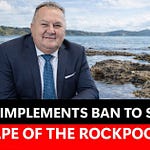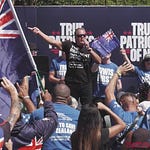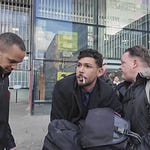In a powerful on-air editorial, broadcaster Heather du Plessis-Allan has spoken out about what she calls New Zealand’s "really bad run" of child abuse incidents, and questioned why the country seems unable, or unwilling, to talk about them.
Speaking on Newstalk ZB, Heather highlighted a series of horrific child abuse cases that have emerged over just the past two months. Among them:
A toddler found in a suitcase in the luggage compartment of an Intercity bus
A baby put in a bin in Auckland
A 2-month-old with serious injuries hospitalised this week
A 3-month-old taken to hospital in June
A 6-month-old critically injured in Foxton Beach in July
“We just bash our babies all the time in this country, apparently,” Heather said bluntly.
What’s worse, she says, is that aside from the most shocking cases, "we’ve hardly talked about this."
Heather believes she knows why.
Suppression orders are silencing the country
As Heather explained, the moment Oranga Tamariki steps in to uplift a child from a violent home, blanket suppression orders from the Family Court kick in. These rules are so strict that:
Police can’t speak publicly
Oranga Tamariki can’t comment
The media is barred from following up
“We get: ‘baby’s gone to hospital,’ and that’s the end of it,” she said.
“It’s only when the child dies that we can talk about it in detail, because there is now no young person to protect anymore.”
And this, she says, is part of the problem.
“This is doing our kids a disservice”
Heather acknowledged the original intention behind these suppression orders: protecting the privacy of vulnerable children. But in practice, she says, the rules are protecting the wrong people.
“What it is also doing is protecting the privacy of the thugs in their families who put them in hospital, or in the suitcase, or in the bin.”
Because of the suppression, the public never hears the full story. The country isn’t horrified by the details, because the details are buried. And when there’s no outrage, there’s no pressure for change.












